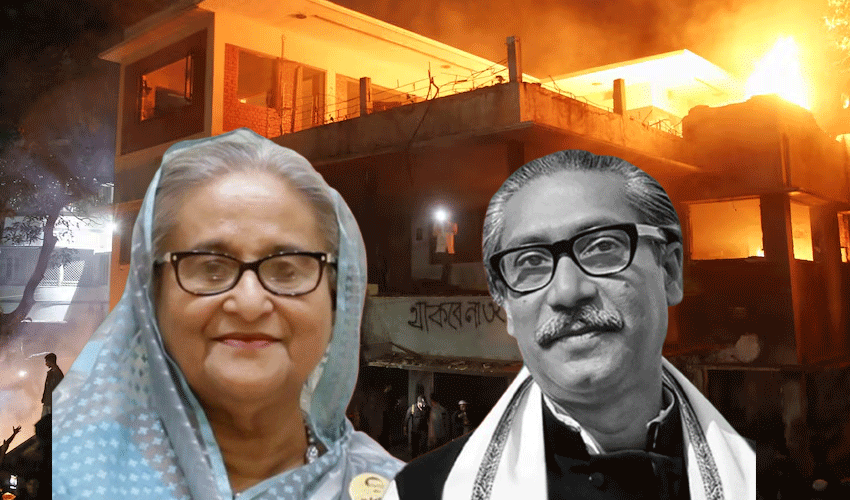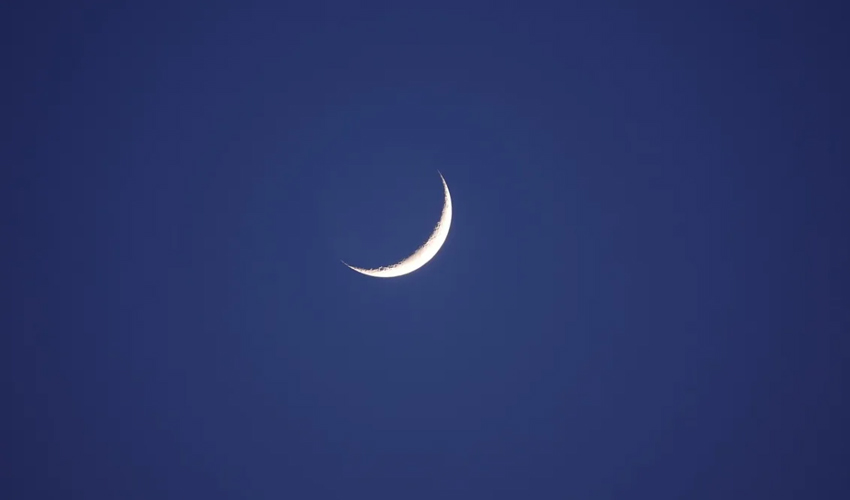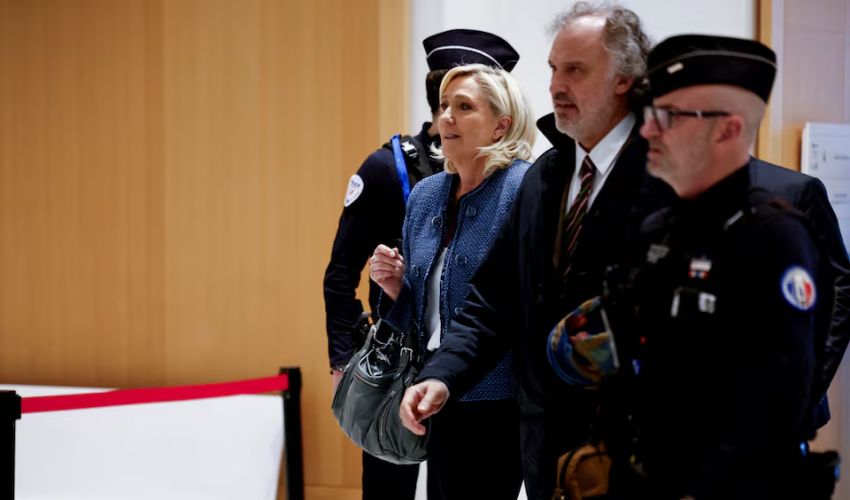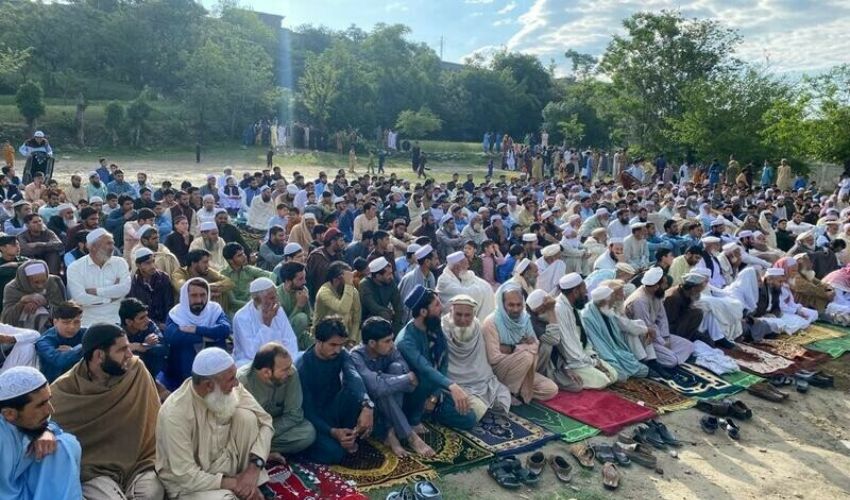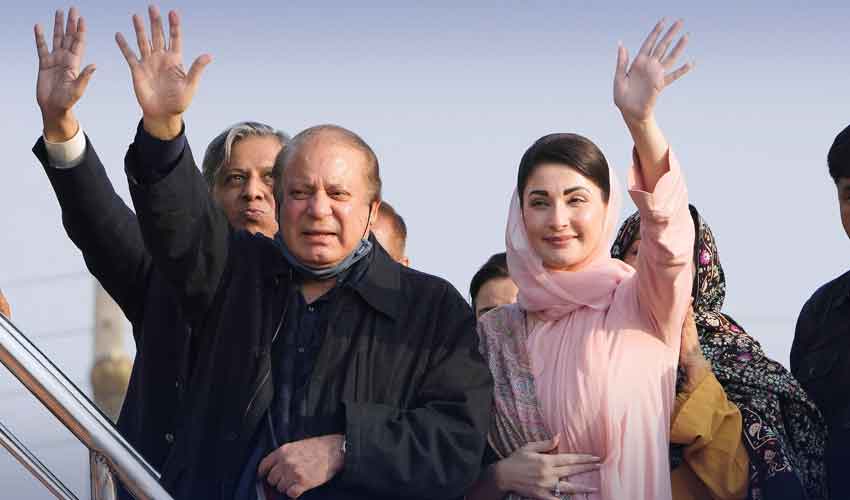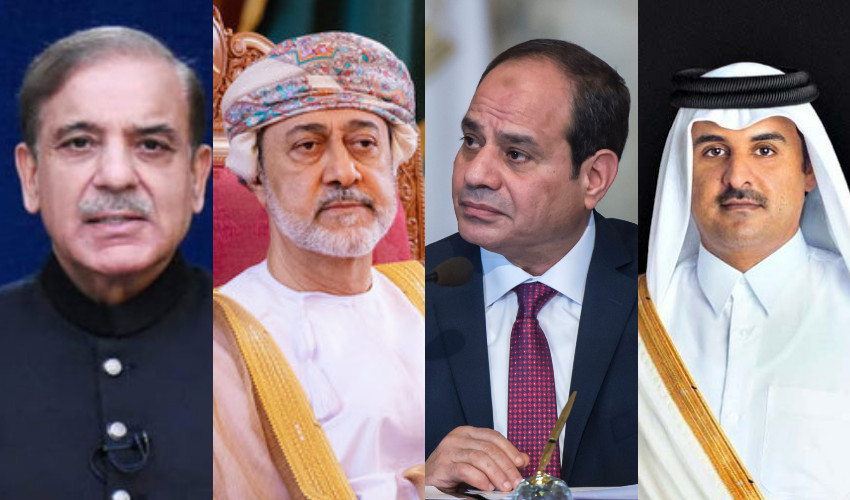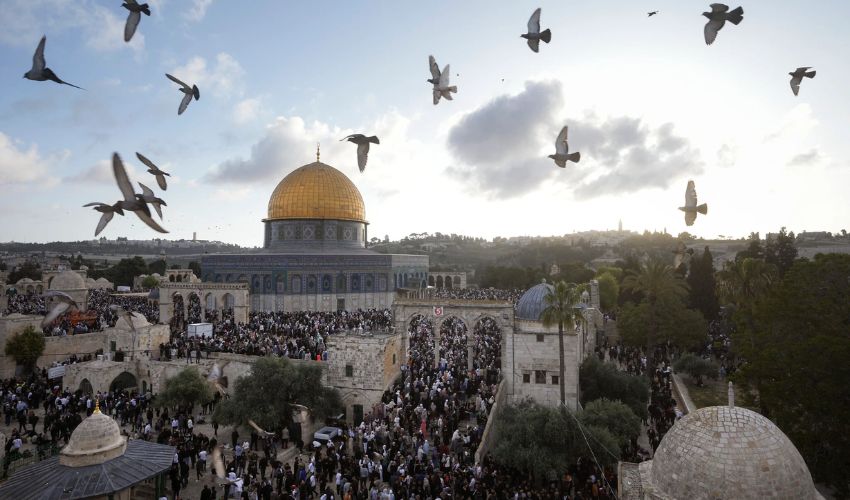The political unrest in Bangladesh reached a boiling point on Thursday as protesters, some armed with sticks and tools stormed the residence of Sheikh Mujibur Rahman - the father of ousted prime minister Sheikh Hasina.
The building, which holds great historical significance as the site where Bangladesh’s independence was declared in 1971, was set ablaze and partially demolished by a crane and excavator.
The protest was part of a broader demonstration, dubbed the "Bulldozer Procession," aimed at disrupting Hasina's scheduled address to the nation via social media.
Hasina, in exile in India since her ousting in August 2024, had delivered a fiery speech, calling on her supporters to stand against the interim government and accusing them of seizing power unconstitutionally.
The former Prime Minister's speech angered the protesters, many of whom are part of the "Students Against Discrimination" movement. They have voiced strong opposition to the interim government and have vowed to dismantle the 1972 Constitution, which they argue represents the legacy of Hasina’s rule.
As thousands gathered around the site of Rahman’s home and the nearby independence monument, emotions ran high. Witnesses reported scenes of chaos as protesters, many clad in student uniforms, clashed with police officers stationed at the scene. Around 700 protesters were present at the site, according to local authorities, though the situation quickly escalated into violent destruction.
Historical significance of Sheikh Mujibur Rahman’s house
Sheikh Mujibur Rahman, often referred to as Bangabandhu (Friend of Bengal), is revered as the architect of Bangladesh’s independence. The house, which became a national symbol of the country's liberation, also marks a tragic chapter in the nation’s history.
In 1975, Mujib and most of his family were assassinated within its walls, and Hasina, who survived the attack, later transformed the residence into a museum dedicated to her father's legacy.
In her speech on Wednesday, Hasina condemned the destruction of the house, asserting that "They can demolish a building, but not the history. History takes its revenge." The comments reflect her continued defiance, as she faces charges in connection with her government's crackdown on student-led protests last year, which led to hundreds of casualties.
Political turmoil and calls for justice
The unrest has been growing since August 2024, when massive protests forced Hasina to flee to India. The interim government, led by Muhammad Yunus, has struggled to regain control as demonstrations against Hasina’s party, the Awami League, continue to spread. While Yunus, a Nobel laureate, works to stabilize the country, he has faced accusations of corruption and failing to address the nation’s economic challenges.
Protesters have called for Hasina's prosecution for her role in the deadly suppression of student protests, as well as for alleged corruption during her two decades in power. They are also pushing for accountability over the perceived manipulation of the country's economy under her rule.
On Wednesday, rallies in Dhaka expanded to target other symbols of Hasina's government, including the residences and businesses of senior Awami League officials. Calls have been circulating on social media for the removal of these “pilgrimage sites of fascism.”
Despite ongoing protests, the caretaker government has remained in power. Yunus, who assumed leadership following Hasina’s ouster, has committed to holding elections in late 2025 or early 2026, but the country remains in a state of uncertainty.
Yunus has faced sharp criticism from Hasina’s supporters and opponents alike, with many accusing him of exacerbating the country’s economic crisis. The Nobel laureate has alleged that Hasina faked the nation’s economic growth during her tenure and laundered billions of dollars, an accusation that has fueled tensions further.
As protests continue to unfold, Bangladesh stands at a crossroads. The torching of Sheikh Mujibur Rahman’s home marks a turning point in the country’s political struggle, one that could either lead to a new era of governance or deepen the divide that has plagued the nation for decades.





